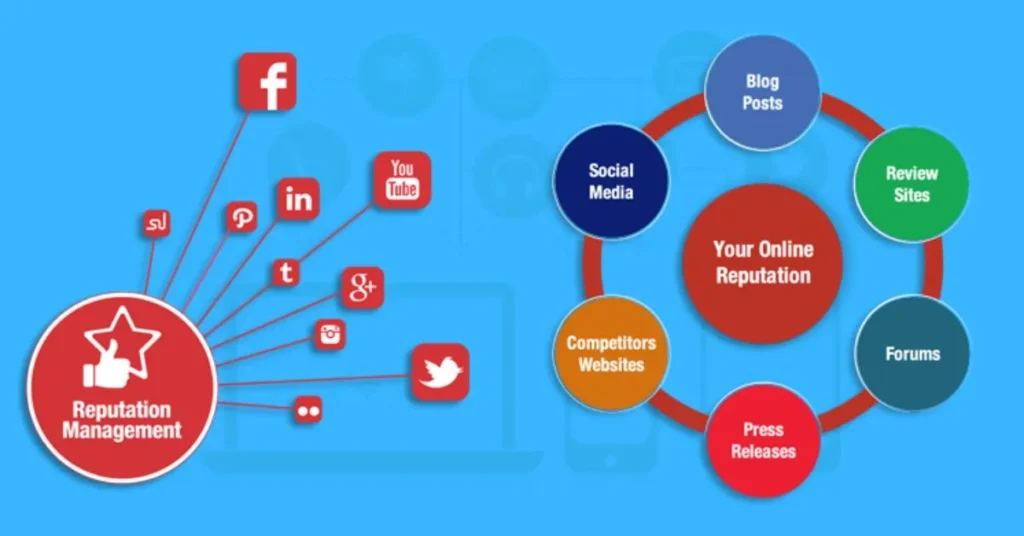Managing a brand’s online reputation is more critical than ever. In today’s digital-first world, how a business or individual appears online can make or break their success. Online Reputation Management (ORM) shapes the public’s perception by managing reviews, social media content, and search engine results. However, even the best ORM efforts may fall short without timely visibility. This is where Rapid URL Indexer comes in, speeding up the indexing of positive content to keep your brand’s reputation intact.
This article will explore how ORM and rapid URL indexing work together, providing a faster and more effective way to manage and enhance a business’s online presence.
What is Online Reputation Management?
Online Reputation Management (ORM) involves monitoring, influencing, and maintaining a brand’s or individual’s perception on the Internet. This involves responding to customer feedback, optimizing online content, and engaging with the public across social media and other platforms. ORM is all about managing the story being told about your brand, ensuring that when people search for you online, they find positive, relevant, and current content.
Key components of ORM include:
- Monitoring: Monitor social media, review sites, blogs, and news to see what is said about your brand.
- Engagement: Responding to both positive and negative feedback to build trust.
- Content Creation: Producing high-quality, positive content representing your brand in the best light.
- SEO Optimization: Ensuring that positive content is optimized for search engines to rank higher.
ORM is essential for both businesses and individuals. A positive online presence builds trust, attracts customers, and ensures long-term success.
What is Rapid URL Indexing?
Rapid URL Indexing is a process that quickly indexes new or updated web pages by search engines like Google. Normally, search engines take days or weeks to crawl and index new content, but rapid indexing tools automate this process, significantly speeding it up.
For businesses focused on ORM, rapid URL indexing ensures that positive content, such as reviews, blog posts, or press releases, appears in search results faster. This can make a critical difference in how a brand is perceived, especially when managing a crisis or responding to negative reviews.
How ORM Benefits from Rapid URL Indexing
Using a Rapid URL Indexer in ORM offers several key benefits:
- Speed and Efficiency
When a business receives positive feedback or creates valuable content, this information must reach the public as soon as possible. Using rapid indexing, businesses can reduce the delay between publishing content and appearing in search results. This ensures that potential customers or clients are more likely to see positive information first.
- Mitigating Negative Feedback
Every business faces negative reviews or unfavorable content at some point. However, ORM focuses on promoting positive content to reduce the impact of negative information. Rapid URL indexing helps push positive content higher in search results, overshadowing negative comments or reviews.
- Increased Visibility
Faster indexing means positive content gains visibility quicker, helping build a positive online reputation. Whether it’s customer reviews, a blog post, or an article, getting this content indexed rapidly ensures it appears in search results sooner, making a lasting impression on potential clients.
- Cost-Effective ORM Strategy
Rapid URL indexing offers a cost-effective solution for businesses managing their reputation. Rather than waiting for search engines to index content naturally, businesses can ensure positive content is seen quickly, avoiding costly damage control campaigns.
- Faster Damage Control
When a business faces negative feedback or a PR crisis, it’s important to respond quickly. Rapid URL indexing ensures that positive responses or newly created content are indexed and ranked quickly, helping to counter any damaging information.
Key Components of Effective Online Reputation Management
To effectively manage a brand’s reputation, a multi-faceted approach is needed. Here are the core strategies businesses should adopt:
Monitoring Online Presence
Tracking what is said about your brand across social media, review sites, blogs, and other platforms is essential. Tools like Google Alerts, Brand24, and Hootsuite can help brands stay updated with real-time mentions, allowing them to respond promptly.
Content Creation
Creating and promoting positive, high-quality content is key to ORM. Whether blog posts, social media updates, or customer testimonials, consistently putting out valuable material ensures that positive content outweighs negative mentions.
Rapid Indexing
Rapid URL indexing tools ensure new or updated content is quickly visible in search results. This gives businesses an advantage in controlling the narrative by pushing positive content to the forefront.
SEO Optimization
Optimizing content for search engines is vital. Using relevant keywords, optimizing meta descriptions, and ensuring mobile-friendly content will help positive content rank higher and push down any negative content.
Engagement and Response
Engaging with customers and responding to positive or negative reviews shows that the business values feedback and is committed to customer satisfaction. Addressing negative comments quickly can turn potential crises into opportunities to build trust.
How Secure is Rapid URL Indexing for ORM?
Using Rapid URL Indexers is secure and compliant with search engine guidelines. These tools automate the submission of URLs to search engines, ensuring new content is indexed quickly without violating SEO rules. Trusted platforms also use encrypted transactions, ensuring the process is safe and efficient for ORM.
By using these tools, businesses can ensure their content is indexed faster, helping them manage their online reputation without risking search engine penalties.
10 Best Tools for Indexing
Here are some of the best tools for quick and effective indexing of your web pages to ensure they get noticed by search engines:
Google Search Console
Google Search Console is one of the most widely used and effective tools for getting pages indexed by Google. It lets you submit sitemaps and individual URLs directly to Google’s index.
- Key Features:
- Submit sitemaps and individual URLs
- Monitor indexing status
- Identify crawl issues
- Fetch is a Google tool to request the indexing of specific pages
Bing Webmaster Tools
Like Google Search Console, Bing Webmaster Tools helps index your pages using Bing. Submitting a sitemap or individual URLs ensures Bing quickly adds your content to its search results.
- Key Features:
- URL submission and sitemap submission
- Crawl performance reports
- Keyword research tools
- Backlink and indexing status reports
Rapid Indexer Tools
Tools like Rapid URL Indexer are designed for fast URL submissions, ensuring web pages get indexed quickly by search engines. These services often work by automating the submission process across various platforms to maximize visibility.
- Key Features:
- Automatic URL submission to multiple sources
- High indexing success rates
- Pay-per-URL or subscription models for cost-effectiveness
- Fast indexing results, often within hours or days
Indexification
Indexification is a service that helps search engines index websites faster. It is designed to send mass URLs to a network of search engines and other platforms for faster indexing.
- Key Features:
- Automatic URL submissions to over 100 search engines
- Bulk indexing for multiple URLs
- Detailed indexing reports
- Integration with SEO tools and services
OneHourIndexing
OneHourIndexing specializes in the rapid indexing of URLs to major search engines. As the name suggests, it’s known for speed, ensuring that submitted URLs get indexed within a short time frame.
- Key Features:
- Fast indexing times, often within an hour
- High indexing success rate
- User-friendly interface for easy submissions
- Integrates with popular SEO tools like GSA and Scrapebox
Pingomatic
Pingomatic is a free service that helps you notify search engines about new content on your site. It’s especially useful for bloggers or websites that frequently update their content, helping ensure fresh posts get indexed quickly.
- Key Features:
- Free to use
- Easy-to-use interface
- Notifies major search engines and directories about updated content
Lindexed
Lindexed provides an advanced URL submission service that ensures quick indexing by Google and other major search engines. It also allows users to track the success of each submitted URL.
- Key Features:
- Bulk URL submission
- Daily indexing reports
- Integration with SEO tools
- High success rates for Google indexing
Instant Link Indexer
Instant Link Indexer helps with the rapid indexing of backlinks and URLs. SEO professionals use it to get pages and links indexed quickly and efficiently, reducing the time search engines take to crawl and index the content.
- Key Features:
- Indexing within hours or days
- Works for backlinks and standard URLs
- Integration with popular SEO tools like Scrapebox
- Detailed reports on indexing status
SEO Autopilot
SEO Autopilot includes an indexing feature that helps index backlinks and URLs faster. It integrates well with other SEO tools, making it a popular choice for SEO agencies and professionals.
- Key Features:
- Automatic submission of URLs
- High indexing rates
- Integration with other SEO tools
- Fast results
Xindexer
Xindexer is another popular URL indexing tool designed to speed up the indexing process for both backlinks and regular URLs. It offers a straightforward interface and is known for its high success rates.
- Key Features:
- High indexing success rate
- Pay-as-you-go model
- Reports on indexing progress
- Easy integration with SEO software
How to Use ORM Effectively
Online Reputation Management (ORM) is a strategic approach businesses and individuals use to manage and influence the public perception of their brand or personal image on the Internet. ORM involves monitoring, managing, and responding to online feedback and content to ensure a positive representation across various platforms.
Here’s a step-by-step guide on how to use ORM effectively:
Monitor Your Online Presence
The first step in ORM is to know what is being said about your brand or yourself online. Monitoring tools help track mentions across social media platforms, review sites, blogs, and search engines.
- Tools to use: Google Alerts, Brand24, Hootsuite, Mention, and Reputology.
- Actions: Set alerts for your brand name, product names, and key personnel to stay updated about new mentions.
Regular monitoring allows you to be aware of both positive and negative feedback. It’s essential for managing your reputation proactively.
Respond to Feedback and Reviews
Engaging with your audience is critical. Whether a positive review or a negative comment, timely and professional responses build trust and credibility.
- Positive Reviews: Thank customers for their positive feedback and show appreciation.
- Negative Reviews: Address concerns respectfully, apologize if necessary, and provide solutions. Always respond with professionalism and empathy.
Create Positive Content
To shape your online reputation, generating and promoting positive content is important. This helps push down negative or irrelevant content in search engine results.
- Content Strategies: Write blog posts, press releases, social media updates, and customer testimonials.
- SEO Optimization: Ensure this positive content is optimized for search engines using relevant keywords, high-quality backlinks, and meta tags.
Positive content that ranks well in search engines will help maintain a favorable online image.
Use SEO Techniques
Search Engine Optimization (SEO) plays a crucial role in ORM. By optimizing your website and content, you can control what appears at the top of search engine results pages (SERPs), ensuring your positive content outranks any negative mentions.
- Best Practices:
- Use targeted keywords in blog posts, social media profiles, and website content.
- Optimize meta descriptions, titles, and tags to ensure search engines rank your positive pages higher.
- Build high-quality backlinks to increase domain authority.
SEO improves your content’s visibility and suppresses harmful content that could affect your reputation.
Engage on Social Media
Being active on social media is key to building a strong online presence. Social media platforms like Facebook, Twitter, LinkedIn, and Instagram allow you to connect directly with your audience.
- Steps:
- Post regular updates to showcase your products, services, and achievements.
- Respond to customer inquiries and feedback promptly.
- Create engaging content such as polls, videos, and live streams to build stronger relationships.
Building a community on social media strengthens your reputation and helps you maintain a positive public image.
Encourage and Manage Reviews
Reviews are a significant factor in shaping online reputation, as customers often rely on them when purchasing.
- Encourage Positive Reviews: Ask satisfied customers to leave reviews on platforms like Google, Yelp, or industry-specific review sites.
- Address Negative Reviews: Take negative reviews seriously. Offer to resolve the issue privately or publicly by responding professionally and offering solutions.
Managing reviews effectively can improve trust and credibility with future customers.
Address Negative Content
Even the most reputable businesses can encounter negative content or reviews. The key is to respond quickly and effectively before they affect your brand’s perception.
- Tactics to Use:
- Contact the author of negative content to request corrections if it’s factually incorrect.
- Use legal action as a last resort if defamatory or harmful content exists.
- Push down negative content by creating more positive, relevant content.
Sometimes, negative reviews reflect a dissatisfied customer, but handling them with care and understanding can turn the situation around.
Crisis Management
In a crisis, such as a PR disaster or negative press, a crisis management plan is crucial.
- Steps:
- Quickly address the issue and be transparent about what went wrong.
- Communicate your plan of action to rectify the situation.
- Maintain open communication with your audience and be responsive to questions and concerns.
Effective crisis management helps mitigate damage to your reputation and can lead to a positive outcome if handled correctly.
Utilize Rapid URL Indexing
Rapid URL indexers can expedite the process for businesses that want faster visibility of their positive content in search engines. These tools ensure that search engines index new or updated content faster, pushing positive content up in search results.
- Tools: Rapid URL Indexer, OneHourIndexing, and Indexification.
- Benefits: Rapid URL indexing can get your content indexed in hours, reducing the visibility of negative content by pushing it down in search results.
Analyze and Report
Track the effectiveness of your ORM efforts by monitoring the results of your strategies.
- Tools: Use Google Analytics, SEMrush, or specialized ORM tools to track metrics like search engine ranking, brand mentions, and customer sentiment.
- Reports: Analyze these reports to measure the success of your efforts, such as how much positive content ranks higher and how customer feedback has changed over time.
Regular analysis helps you adjust strategies for improving your online reputation management.
Conclusion
Online Reputation Management is essential to maintaining a strong, positive online presence. By combining ORM strategies with the power of Rapid URL Indexers, businesses can take control of how they are seen online. Fast indexing of positive content ensures that when potential customers search for your business, they see the best side first, helping build trust and credibility.
FAQs:
How does rapid URL indexing improve ORM?
Rapid URL indexing ensures that search engines quickly index positive content, helping businesses push favorable content higher in search results.
Is rapid URL indexing safe to use for SEO?
Yes, trusted tools like Rapid URL Indexer are safe and follow search engine guidelines, ensuring they don’t negatively impact your SEO.
Can rapid URL indexers help with negative reviews?
While they can’t remove negative reviews, rapid URL indexers help push positive content higher in search results, reducing the visibility of negative feedback.
How quickly can content get indexed using rapid URL indexers?
With a rapid URL indexer, content can be indexed within hours rather than the days or weeks it might take through traditional indexing.
What types of businesses benefit most from rapid URL indexers?
Any business that depends on its online reputation, including e-commerce, service providers, and even personal brands, can use rapid URL indexers for faster content visibility.
Top of Form
Bottom of Form



